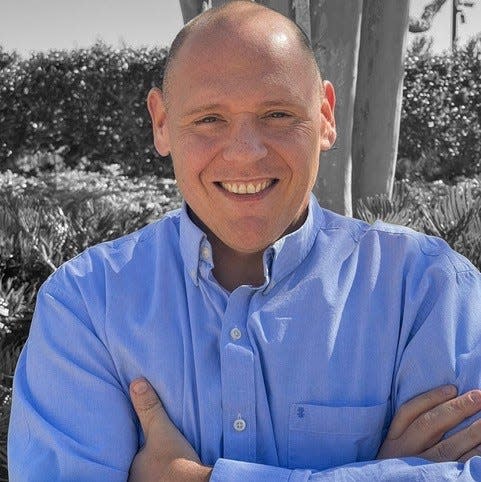Living in a financial advice desert? Tips for saving money in Alabama
It’s no secret that Alabama is a financial advice desert. With its abundance of farmland and rural communities, researchers at the University of Georgia found that Alabama has a startlingly low number of certified financial planners and personal financial advisers compared to its population.
Kevin Chancellor, CEO of Black Lab Financial Services, said this fact didn’t surprise him. Outside of a few major metro areas like Montgomery, Birmingham and Huntsville, many Alabamians end up driving at least 45 minutes to get to a “local” adviser.
Chancellor grew up in rural Alabama and attended the University of Alabama. Now, running his company out of Palm Bay, Florida, Chancellor wants to make financial advice widely accessible to everyone.
He sat down with the Montgomery Advertiser to explain the basics of financial planning, the importance of having an emergency fund and other tips.

This interview has been lightly edited for clarity and brevity.
With the recent tornadoes that tore through central Alabama, many people are realizing why they need to have emergency savings. How much should people have in savings?
Kevin Chancellor: The basic foundation of any good financial plan is going to be an emergency reserve.
Every person I work with, the first thing we look at is having that cash reserve. That cash reserve is different for different people. It’s unique to every person, but the rule of thumb is enough to support you for about four to six months.
I say about two to three months in a checking account at the bare minimum. Two needs to be in a checking account, and then the remainder, upwards of an additional six months, in some sort of savings.
Should Alabamians keep their emergency funds in a bank account or in cash at home?
The problem in Alabama when we have so many tornadoes is you face a risk of having all your money in a bank, and if something happens, you can't get to the bank. But then also, you have the risk of keeping cash on hand in your house, if it is destroyed by a tornado.
There's risks on both sides of things, but I always try to tell my people: Keep a small portion in cash on hand in your house. It’s a small portion just to help you, and that way, you're not depleting your entire emergency reserve if a tornado does come through. Then keep the remainder in a financial institution.
I'm not a huge fan of anybody keeping large sums of money in a safe.
If someone has debt to pay off, how should that play into a financial plan?
Obviously, they're going to have a harder time building up the reserve with the more debt they have, but they do need to balance that. They can't put 100% of their excess cash towards debt payments.
They still have to allocate a portion of that income to an emergency reserve so that they don't have to go in and use the credit card or use any other type of debt structure if the air conditioner breaks, or if they need a car part or something like that.
For example, if they have to pay $400 in debt payments, and they have $500 in cash, I’d say do the $400, but still put the $100 in reserve and don’t spend it.
What about people who don’t have much excess money each month to put into savings? How should they approach saving long-term?
The first thing I would do for people who are on limited incomes is see where the dollars are going, even if it means saving every receipt for a month. Let's see what we can allocate, even if it's a small amount. Just get in the habit of putting some money away, even if it's $20 at a time.
What I find with people that don't have a lot of excess income, you're more so developing a habit than you are trying to fund something.
Are there any other tips or tricks to financial planning that beginners should know?
There's a kind of a generic rule of thumb out there when it comes to a simple way to budget. That is the 20-50-30 rule.
Essentially, 20% of your income goes to savings of some kind, whether that be an emergency fund to start with, and then to retirement accounts, things like that. 50% of your annual income needs to go to your living expenses. Then the other 30% should be that discretionary spending.
That 30% extra, if you don’t have an emergency fund and you’re in debt, needs to be whittled down to where you’re adding it to the 20% that needs to go toward savings and paying down debt.
If you know that, if you're aware of your budget, you'd be surprised where you can find savings and where you can find opportunities to pay down debt a little faster or to save a little more a little faster.
Hadley Hitson covers the rural South for the Montgomery Advertiser and Report for America. She can be reached at hhitson@gannett.com. To support her work, subscribe to the Advertiser or donate to Report for America.
This article originally appeared on Montgomery Advertiser: Living in a financial advice desert? Tips for saving money in Alabama
